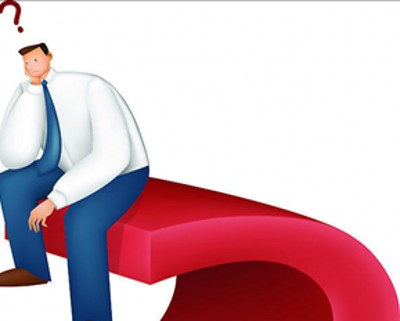(单词翻译:单击)
Claim: The ritual of clinking glasses evolved from efforts to prove that the drinks contained therein were not poisoned.
声称:碰杯的仪式起源于确认杯中有无毒药
False
错误
Q: Why do people clink their glasses before drinking a toast?
Q:为什么喝酒时要碰杯?
A: It used to be common for someone to try to kill an enemy by offering him a poisoned drink. To prove to a guest that a drink was safe, it became customary for a guest to pour a small amount of his drink into the glass of the host. Both men would drink it simultaneously. When a guest trusted his host, he would then just touch or clink the host's glass with his own.
A:过去常常有人认为在酒杯里放毒来谋杀敌人,为了证实酒是安全的,宾客会把杯中一部分酒倒进主人杯中已成为一种习俗,然后主宾同时喝下去以证明无毒。当宾客信认主人时,两人就只是碰一下杯子。
Origins: Many explanations have been advanced to explain our custom of clinking glasses when participating in toasts. One is that early Europeans felt the sound helped to drive off evil spirits. Another holds that by clanking the glasses into one another, wine could be sloshed from glass to glass, thereby serving as a proof the beverages had not been poisoned. Yet another claim asserts that the "clink" served as a symbolic acknowledgment of trust among imbibers who did not feel the need to sample each others' drinks to prove them unadulterated.
起源:喝酒碰杯的习俗有很多种解释。一种是早期欧洲人认为碰杯的声音可以驱逐恶灵。另一种解释坚持认为碰杯时双方各将自己的酒向对方的酒杯中倾注一些,从而证明酒中无毒。然而还有另一种则认为:碰杯是一种象征性的相信酒是干净的,不需证明有没有放毒。
Each of those explanations is false. While making a racket for the purpose of scaring off evil spirits underpins other customs that carry over to this day (e.g., the tolling of church bells at weddings, and the loud shouts and noisemaking at the stroke of twelve on New Year's Eve), the "clink" is a relatively new aspect of toasting and, as such, came along well after folks had relinquished the notion that demons both lurked in every corner of typical day-to-day existence and could be sped on their way by a bit of noise. As for sloshing wine from one glass to another, drinking vessels would need to be filled to the brim to effect that, and if they were, such practice would waste valuable potables (because some would be sure to land on the floor) and likely douse the toasters too. And while the poisoning of enemies has long been part of the ordinary mayhem of the world, the practice of touching of one's filled glass to those of others when participating in a toast is unrelated to suspicion of the wine's having been tampered with; such killings were not so common at any nebulous point in the past that a signal to one's host indicating he was clear of suspicion of attempted murder needed to be enshrined in the canon of social gestures.
以上那些观点都是错误的。虽然碰杯驱邪说法衍生出了很多习俗并沿用至今(例如婚礼上教堂的钟声、大声喊叫还有除夕夜正点的狂欢。),但碰杯是祝酒中相对较新的一环,是人们不再相信恶灵存在于我们生活中的每个角落这一观念之后才产生的。其实人们只是为了要一些热闹而已。至于碰杯使酒从一方流到另一方,那么酒器是需要盛满酒的,如果盛满了,那这样就会浪费昂贵的饮料(因为肯定会有酒洒到地上去)还有可能泼到食物上。虽然毒死敌人世界上以前的确被用过,但喝酒时把酒倒进另一个人的酒杯里,无端地猜疑无辜的人是不合理的。更何况在过去这种杀人方式并不常用,因为这意味着主人的社会地位会因涉嫌企图谋杀而发生动摇。
To get at the real reason for the clink of glass on glass, we have to first look at why and how we toast, and where the practice originated.
那么要找到喝酒碰杯的真正原因,我们首先应该了解的是我们为什么喝酒?怎么喝酒?并会在什么样的情况下碰杯?
The custom of sealing with booze expressions of good wishes for the health of others dates back so far that its origins are now lost to us, yet in numerous cultures such acts of camaraderie often involved shared drinking vessels. The clinking of individual cups or glasses as a proof of trust wouldn't have meant much when everyone drank from the same bowl. Indeed, in those cultures where shared drinking containers was the norm, to produce one's own vessel in such company was to communicate an unmistakable message of hostility and distrust; it would have been regarded as akin to bringing along a food taster to sample the repast.
我们很难找到喝酒狂欢表达良好祝愿如身体健康等的起源。然而在众多中,朋友之间的行为会经常涉及到祝酒,每个人从同一个碗里喝酒,那么碰杯就不再是信任彼此的证明。实际上,在这样一种文化里,公用同一个酒器成为一种规则,单独用你自己的酒杯会带来敌对和不信任的误解信息,这将被认为同做餐后的食物品尝家的品尝行为来防毒相类似。
"Toasting," our term for the pronouncement of benedictions followed by a swallowing of alcohol, is believed to have taken its name from a practice involving a shared drinking vessel. Floated in the "loving cup" passed among celebrants in Britain was a piece of (spiced) cooked bread that the host would consume along with the last few drops of liquid after the cup had made one round of the company. In modern times toasting has become a matter of imbibing from individual drinking vessels rather than from one shared flagon, so to compensate for the sense of unity lost in doing away with the sharing of the same cup we have evolved the practice of simultaneously drinking each from our own glass when a toast is made, thereby maintaining a communal connection to the kind words being spoken.
“干杯”,我们喝酒后紧随祝福的一句,名字来源被认为是一个涉及公用的酒杯的行为。英国神父流传来的流动的“爱情杯”是主人当酒杯走过一轮后在一块烹制的面包滴几滴酒吃掉的。现在祝酒,不再公用一个酒杯,而是用自己的杯子。为了弥补群体脱离感,抛弃了公用酒杯,我们开始用自个的杯子,因此祝酒才产生了。因此一种靠说友好祝福维系关系的方式产生了。
The clinking of glasses has been added to the practice of offering toasts for a few reasons, none having anything to do with poison. Prior to such augmentation, toasts pleased only four of the five senses; by adding the "clink," a pleasant sound was made part of the experience, and wine glasses have come to be prized not only for their appearance but also for the tones they produce when struck. Yet beyond mere aural pleasure, the act of touching your glass to that of others is a way of emphasizing that you are part of the good wishes being expressed, that you are making a physical connection to the toast. The practice also serves another purpose, that of uniting the individuals taking part in the benediction into a cohesive group: as the wine glasses are brought together, so symbolically are the people holding them. On a deeper level, the wine is also being recommuned with itself — that which had been one (when it had been in its own bottle) but was separated (when it was poured into a variety of glasses) is brought back into contact with the whole of itself, if only for a moment.
碰杯因一些原因也被加进祝酒的行列,和毒药没有一丝关系。增加了这些,祝酒使气氛好了五分之四。通过加碰杯这一环节,一种悦耳的声音成为祝酒的一部分。并且不仅仅赞美杯的出现还赞美酒杯碰撞时发出的响声。然而除了听觉享受外,有人和你碰杯也是一种友好祝福的暗示。你通过祝酒与人发生了接触。碰杯还有另一个意图,就是通过人与人的祝酒使之参加到一个有关联的大集体。当酒杯碰在一起的时候,人们也象征性地“拥抱”了。深层次的说,人也是(当用自己的杯子喝酒时)在一起的,(当酒在一起时)人其实是分开的,从某种意义上说,酒有了人回归一个完整的联系的含义。
Etiquette mavens say one need not clink glasses with everyone present when participating in toasts among large assemblies. Rather than reach across vast expanses of wide tables (thereby risking losing your balance and ending up in the guacamole), simply raise your glass and make eye contact with the group.
礼节上在现在当一个人参加一个大聚会时不需要和每个人碰杯。相比较隔个大桌子(而冒着失去平衡的危险)碰杯而言,还不如举起酒杯眼神交流感情来得真切。



